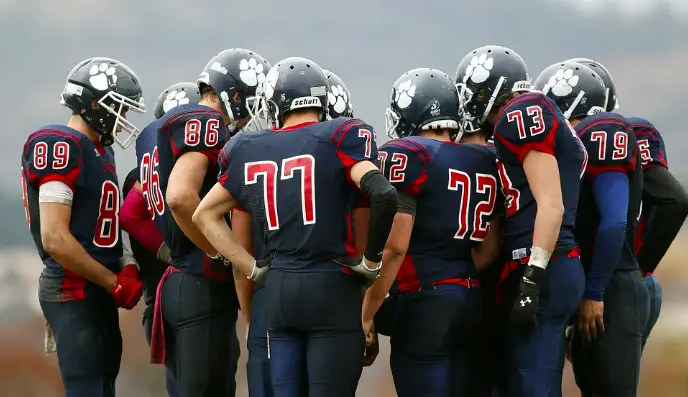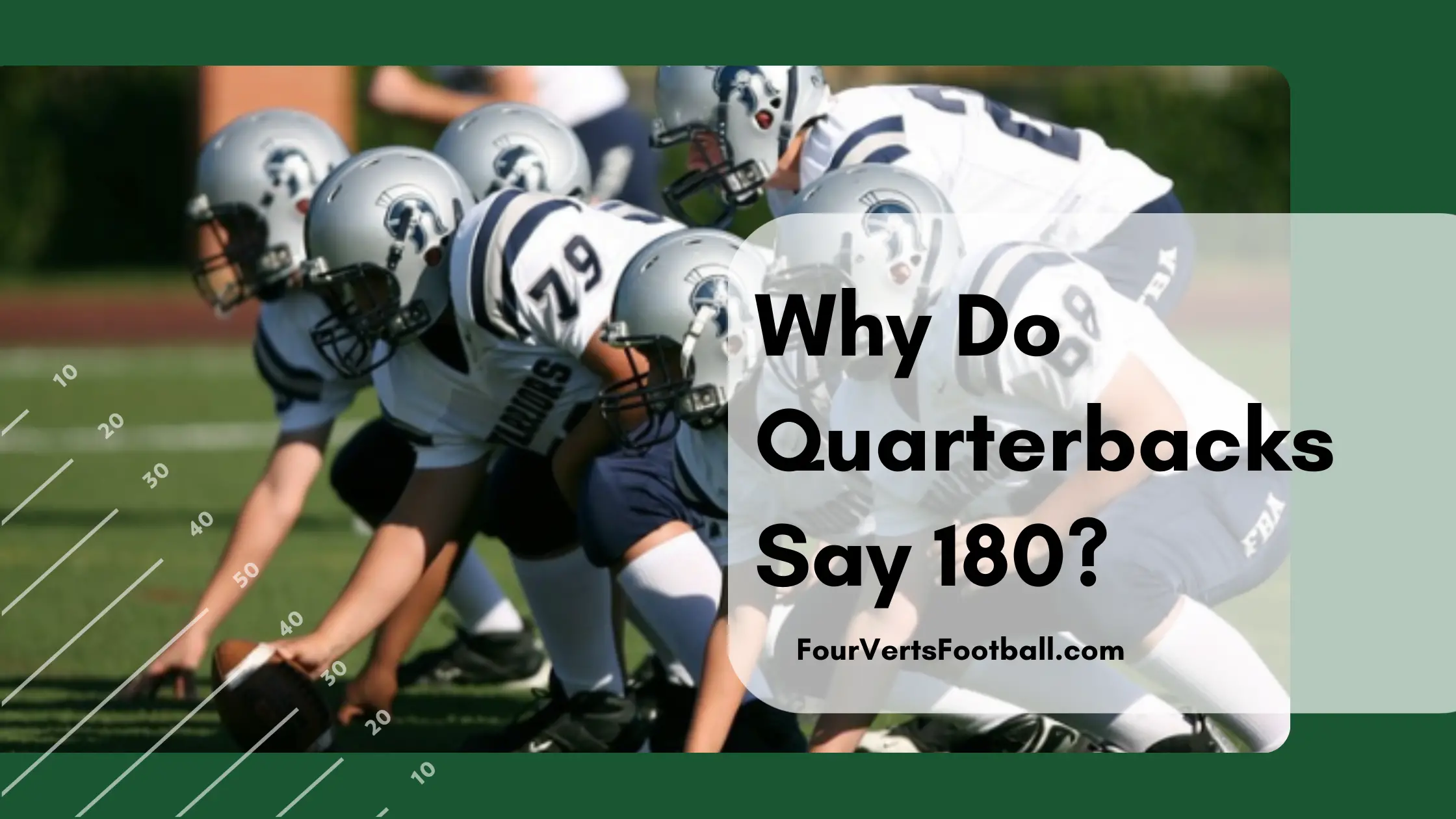The easiest answer to the question why do quarterbacks say 180 before snapping the ball is simply that they don’t.
What you are hearing is actually the quarterback saying “white eighty”. This term is most commonly used as a cadence to let his teammates know that he is ready to start the play.
What Exactly Does White Eighty Mean?
White eighty itself doesn’t actually have an exact meaning. Instead, this term is used as a verbal cue to let the team know the quarterback is ready to hut the ball. Oftentimes teams use a combination of colours and numbers as this verbal cue.
Aaron Rodgers and the Green Bay Packers typically use the call “Green 19” when he is ready to snap the ball. The colour and the number used do not have any meaning themselves. White 80 which is often heard as “one-eighty” is the most common phrase used for this cue.
Similar to the mishearing of white eighty as 180 fans will often hear green 19 as three nineteen. This has left many fans wondering why quarterbacks like Aaron Rodgers and Tom Brady yell three nineteen before each play.
Why Does A Quarterback Have To Let The Team Know He Is Ready?
You may be wondering why the quarterback needs to let everyone know he is ready since they just left the huddle.
The reason for this is the quarterback has to make several decisions after the huddle and before the ball is snapped.
A quarterback first must take a look at the defensive formation. At this point, he may want to call an audible.
This means he can change the play if he thinks the defensive formation is going to stop his current play.
The quarterback may also want to call out and identify players. Lines like “58 is the mike” or “54 is the will” all refer to players positions being identified by the quarterback.
This helps players on the offense understand who is who on the defense.

This is important for players looking to determine who to block. Blocking assignments in football can be difficult which is why you will see the quarterback and other offensive lineman pointing and talking about who to block.
Additionally, a quarterback may also determine if he wants a player to run a hot route.
A hot route allows the quarterback to tell a receiver specific route to run on the play. This decision may be made if he sees a potential weakness in the defense.
If the quarterback has decided not to call an audible and has identified the players he wishes to it is now time to start the cadence.
It is at this point he will state “180” aka white eighty. This says to his team I’m done looking at the defense we are about to start this play.
You may even notice offensive and defensive players shift their stance once they hear “180” or white eighty called.
This is because they know the play is about to begin.
Alternative Uses For Calls Like White Eighty (180)
For the vast majority of plays you hear a quarterback yell 180 or white eighty it simply means he is about to start the play. But in some situations, he may be using this term as a sort of trick.
A football strategy referred to as a hard count utilizes verbal cues like this to trick the opposing team into thinking they are going to snap the ball.
If the opponent thinks you are going to snap the ball and start the play prematurely he will be penalized.
Ultimately giving the offense a free five yards via penalty.
The way to get the defensive players to jump offside is by tricking them. Defensive players will only jump offside if they think they know when the play will start.
Saying the phrase 180 or white eighty gives the players a cue the play is about to start. This will get the offensive players ready to go. At this point, the quarterback will say a predetermined series of words to signal the center to snap the ball.
Oftentimes this is enough to convince the defense the play is starting causing them to jump offside.
In conclusion, white eighty is almost always used to let the offense know the ball is about to be snapped. But on some occasions, it can be used as a deception to trick the other team into jumping offside.

